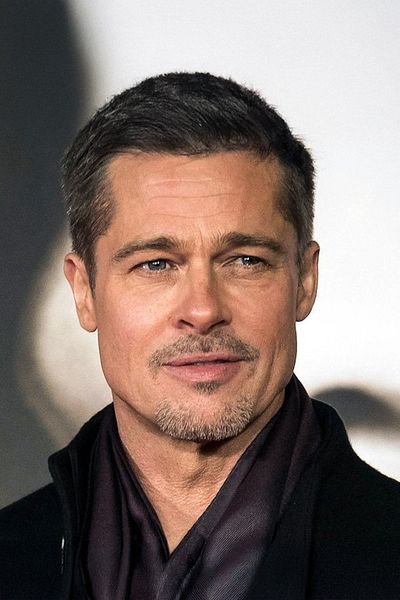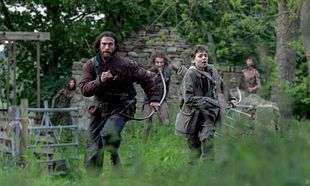War. What is it good for? As it turns out, a fair few decent movies through the years, although we haven’t been given one in a while. Thankfully director David Ayer has come to (kind of) rectify that, bringing the intense realism of End Of Watch to his World War II story, while leaving behind the unpalatable machismo of Sabotage. However, while director David Ayer shows talent and intent to spare, sometimes writer David Ayer causes him to trip up, trying to be Tarantino when all he really needed to be was himself. He did write Training Day, after all.
We meet Clichéd War Buddies just as they’ve violently lost a member of their tank team, so when the Religious One (LaBeouf), the Crazy One (Bernthal), the Ethnic One (Pena) and the Leader One (Pitt) are landed with the Newbie One (Lerman), they’re none too thrilled. This band of brothers have all bled for each other and through their baptism of fire, the newb will either be integrated into their group, or more likely, quit or be killed pretty sharpish.
Set in Germany at the end of the war, the remaining Nazi soldiers are fighting back like a deranged, rabid, cornered animal, which leads to some fantastically framed and choreographed action sequences, and it’s in these moments Fury really lets loose. The claustrophobic metallic innards of the tank mixed with the tracer-filled shoot-outs are at once hugely energized and quite different to anything else we’re used to seeing in war movies. The level of violence is also ramped up, with the first and third act overflowing with these tense, gory outbursts.
Things are almost derailed completely during the stifled middle section though, when the soldiers stop fighting to have a long conversation in an apartment. Feeling like it was poorly adapted from a single-scene play, it’s completely at odds with the events on either side of it. Tarantino can do long conversations in a war movie, but Ayer doesn’t have Tarantino’s way with words or characteristic motivations, and it’s in this scene that this becomes oh so painfully clear.
The cast are uniformly good, though not great, with LaBeouf’s eyes constantly filled with tears, Lerman’s mouth constantly agape at the horrors he’s witnessing, and Pitt’s “uglified” face filled with physical and emotional scarring. As war movies go, it’s more of a romp than anything else, in line with the bombastically entertaining likes of Black Hawk Down or Saving Private Ryan than the insights into humanity of Full Metal Jack or Platoon. Plus it comes with that completely superfluous scene that basically lights up in neon saying “If you need to go to the bathroom, now’s the time.”



















































































